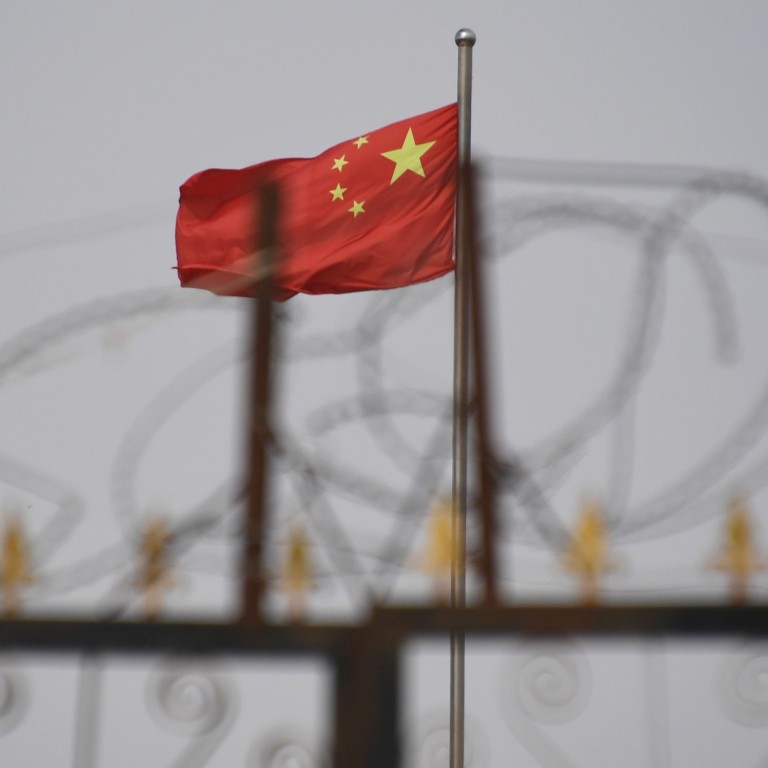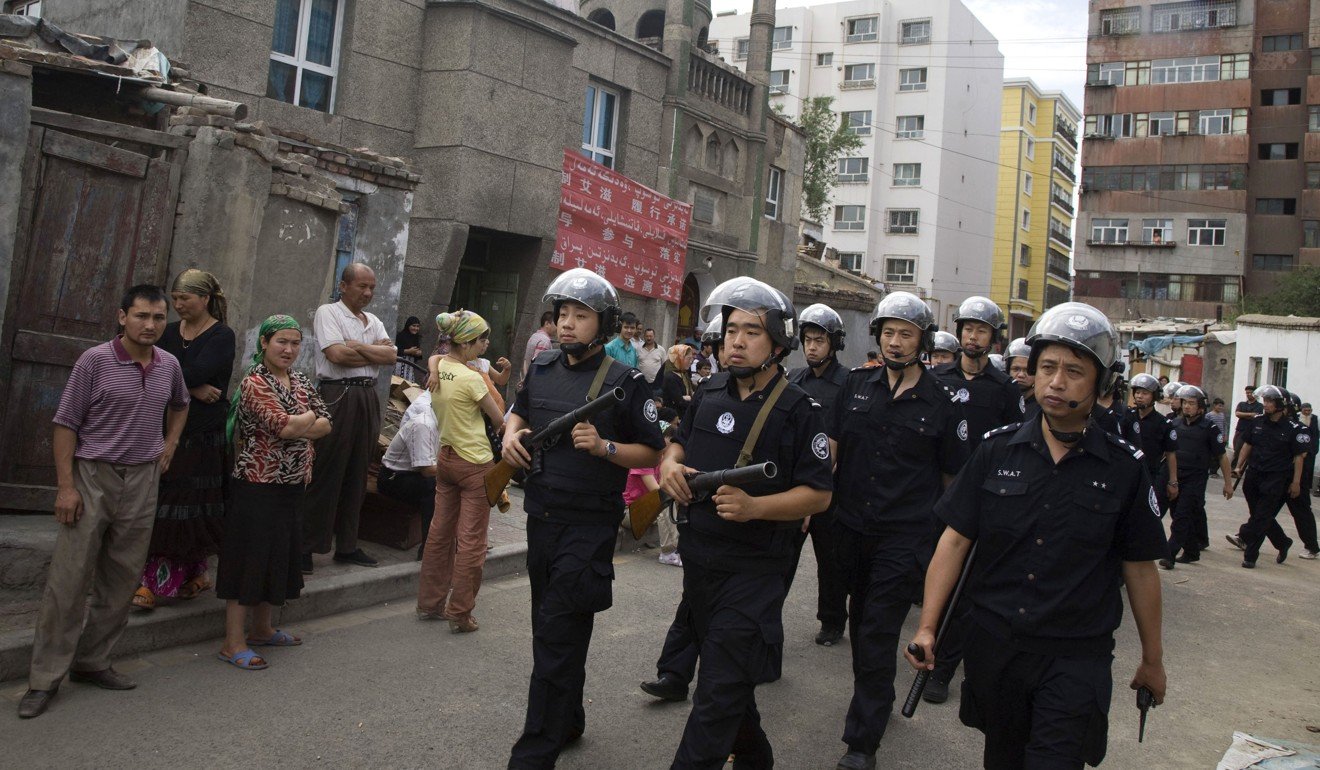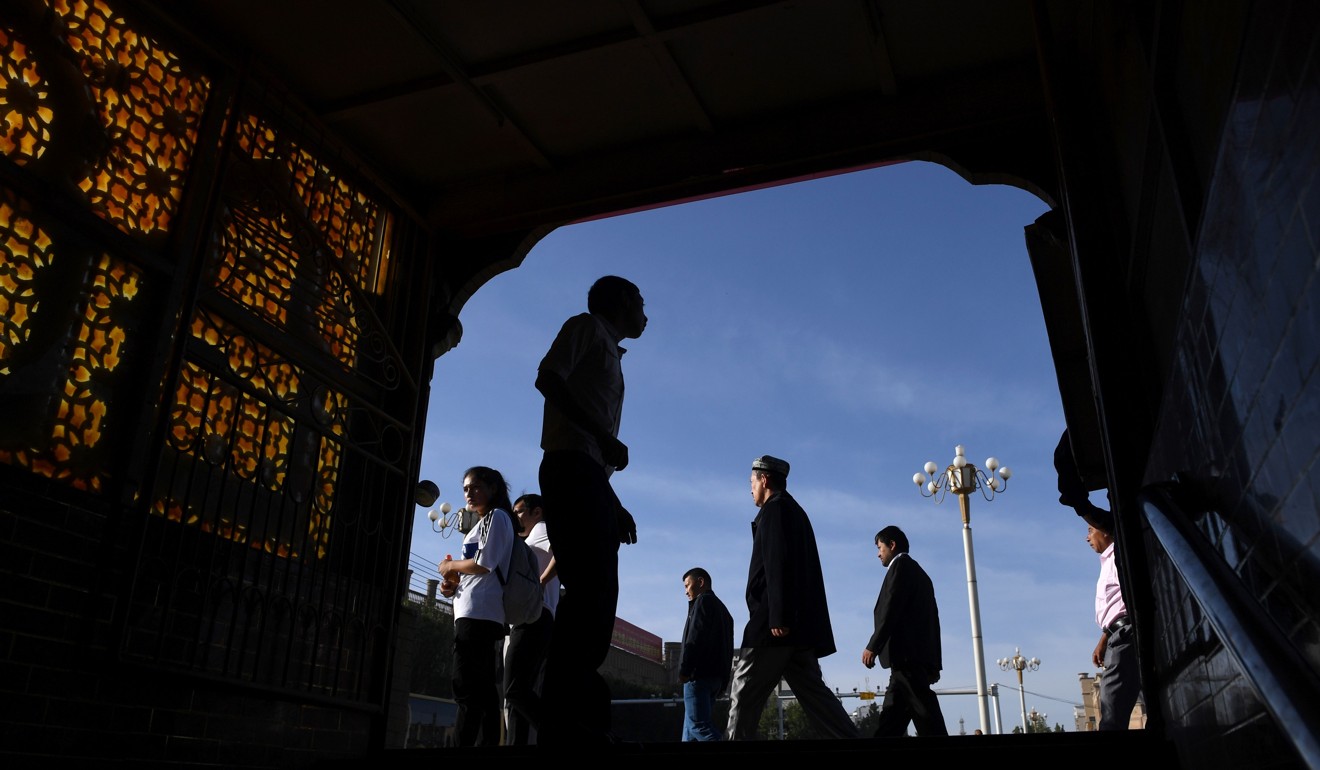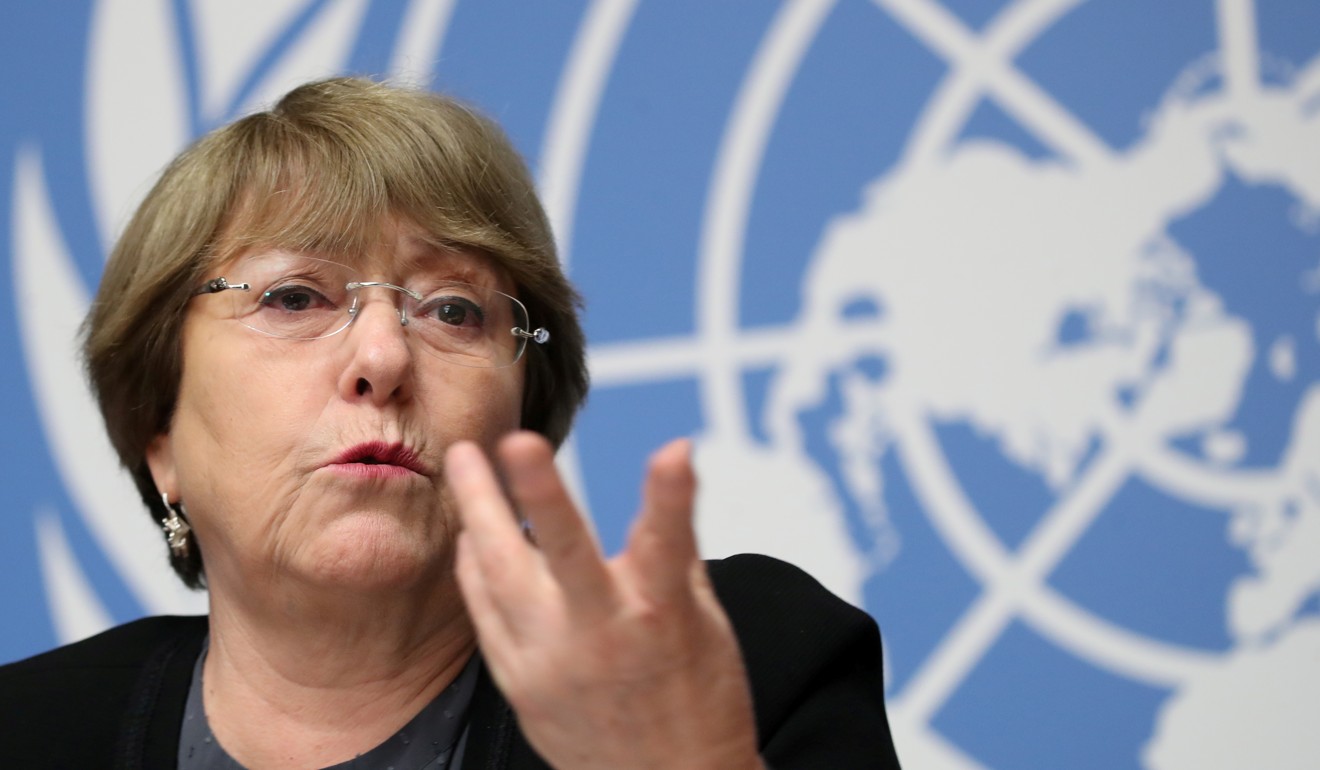
Xinjiang camps: UN ambassadors urge China to end detention of Uygurs in open letter
- Document calls on Beijing to ‘uphold its national laws and international obligations and to respect human rights and fundamental freedoms’
- Letter signed by envoys from 22 countries, including Australia, Britain, France and Germany
Nearly two dozen countries have called on China to halt its mass detention of ethnic Uygurs in Xinjiang, the first such joint move on the issue at the UN Human Rights Council, according to diplomats and a letter seen by Reuters.
UN experts and activists say at least 1 million Uygurs and other Muslims are being held in detention camps in the remote western region.
The unprecedented letter to the president of the forum, dated Monday, was signed by the ambassadors of 22 countries. Australia, Canada and Japan were among them, along with European countries including Britain, France, Germany and Switzerland, but not the United States which quit the forum a year ago.

It fell short of a formal statement being read out at the council or a resolution submitted for a vote, as sought by activists. This was due to governments’ fears of a potential political and economic backlash from China, diplomats said.
“It is a first collective response on Xinjiang,” a Western diplomat said on Wednesday. “The idea of a resolution was never on the cards.”
US slams China’s ‘extreme hostility’ towards religious freedom
Another envoy said: “It’s a formal step because it will be published as an official document of the council … It is a signal.”
The letter voices concern at reports of unlawful detention in “large-scale places of detention, as well as widespread surveillance and restrictions, particularly targeting Uygurs and other minorities in Xinjiang”.

It cites China’s obligations as a member of the 47-member state forum to maintain the highest standards.
“We call on China to uphold its national laws and international obligations and to respect human rights and fundamental freedoms, including freedom of religion or belief in Xinjiang and across China,” the letter says.
“We call also on China to refrain from the arbitrary detention and restrictions on freedom of movement of Uygurs, and other Muslim and minority communities in Xinjiang.”
Beijing sees ‘consensus’ with UN on Xinjiang
The letter urges China to allow international independent experts, including UN High Commissioner for Human Rights Michelle Bachelet, “meaningful access” to Xinjiang.
Bachelet, a former president of Chile, has pushed China to grant the United Nations access to investigate reports of disappearances and arbitrary detentions, particularly of Muslims in Xinjiang.
China’s ambassador to the United Nations in Geneva said last month that he hoped she would take up its invitation.
A UN spokeswoman said at the time that the trip, including “full access to Xinjiang”, was under discussion.

No Western delegation was willing to take the lead and expose itself as a “ringleader” through a joint statement or resolution, diplomats said. China’s delegation is “hopping mad” at the move and is preparing its own letter, a diplomat said.
At the start of the three-week session, which ends on Friday, Erkin Tuniyaz, the vice-governor of Xinjiang, responded to international condemnation of state-run detention camps by saying that they were vocational centres that had helped “save” people from extremist influences.
China had now effectively contained terrorism and religious extremism in the Xinjiang, Tuniyaz told the council in an appearance that was sharply criticised by the United States.

